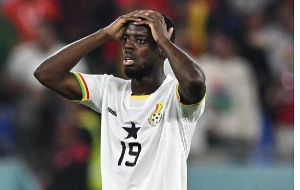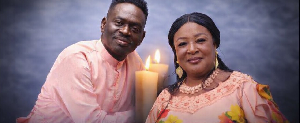Foreign media reports have indicated that two COVID-19 infected children, aged 12 and 13, have died in Belgium and UK.
The Agence France-Presse and Associated Press reporter reported on April 1, that the 12-year-old girl in Belgium and the 13-year old boy in the UK, died through COVID-19 infections.
The report indicated that the two children were believed to be the youngest victims of the disease in their respective countries.
A spokesman had added that the girl had had a fever for three days and had tested positive for Coronavirus.
According to the reports, few hours after the announcement of the death of the Belgium girl, London's King's College Hospital, also announced the death of the 13-year-old boy of COVID-19.
"Sadly he died without any family members close by due to the highly infectious nature of Covid-19," the report added.
Meanwhile, French authorities had earlier reported the death of a 16-year-old girl, identified as Julie A at a Children's Hospital in Paris, also believed to be as a result of Coronavirus.
The US State of Illinois in March, announced the death of an infant under one year old who had tested positive for the disease.
Other media reports have indicated that medical reports on cases in China have also documented the death of a 10-month-old baby and a 14-year-old boy, all to COVID-19.
If these media reports of the deaths of young children resulting from COVID-19 infections are anything to go by, then we parents in Africa, and for that matter, in Ghana, need to seriously support national efforts at combating the spread of the virus in our parts of the world, so we and our children will stay safe and alive.
The World Health Organisation (WHO) has explained that the disease’s geographical spread makes it a pandemic.
Symptoms of the virus that originated from Wuhan, China, are said to include fever, cough and shortness of breath, while in more severe cases, infection can cause pneumonia or breathing difficulties. More rarely, the disease can be fatal.
These symptoms that are similar to the flu (influenza) or the common cold, could be proven to be COVID-19 positive or negative only through testing to confirm if someone has the virus.
Ghana recorded its first two COVID-19 cases on March 12, 2020, and the subsequent events and increase in the cases necessitated the President to announce preventive, tracing, treatment measures and socio-economic interventions.
These include social distancing , four-week ban on social gatherings and the indefinite closing down of schools, from basic to tertiary institutions.
In fact, all over the world, citizens, including children, are living with lockdowns measures and the hardships of isolations due to the virus.
As at April 17, Ghana, had recorded 641 coronavirus cases, with 83 recoveries, and eight deaths.
There are also 175 people with the virus who are said to be responding to treatment, and two in critical conditions.
We, in Ghana, and our children are thus, staying home for about four-weeks now and are already becoming “bored” with the restrictions and social distancing protocols, which nevertheless, are believed to make all of us stay safe from the virus.
Many children and their parents alike, have expressed their boredom and idleness, which they say is already having a toll on them.
An earlier interactions I had with some children in my community on the impact of the pandemic and its mitigation measures revealed that many of the people are not comfortable about the social distancing at all, even though most of them are well informed about the virus and how it spreads through touching and closely associating with one another.
To many of the children, they wished they could be allowed to go out and play with their friends as usual, once they are on some sort of holidays at home, or are able to go back to school soon to learn, and to meet with their school mates.
Indeed, being in a lock-down at home have its own merits and demerits. The children, especially, will have time to be home-mentored, and participate in the household chores, which, they hitherto, would not have had the opportunity because of school.
And so, they see the close down of their schools as an opportunity to stay off their books- as being perceived by my own children, aged 13, 11, and nine years, who would always struggle to home-learn whenever we the parents want them to do so.
They see the lockdown as a time to only watch television- cartoons, wrestling and other things of their interest more, and just to learn “small” and play out with their friends mostly.
Other children including, 10-year old Adjoa said; “Yes, we have heard about the virus and the social distancing, but we will be careful when we are allowed to play outside with our friends”.
Another 12-year old boy named , Charles said: “I’m so bored about not even being allowed to play football with my friends, or do our bicycle races too”.
However, how can we be sure that our children would be safe from this deadly pandemic when we give them the chance to play their usual football game, their “ampe’ (mainly for girls), their game of hide and seek and all other games that exposes them to COVID-19?
According to a Ghana Health Service's March and April data available on its website sourced on Thursday April 16, 2020, the percentage distribution of COVID-19 by age in Ghana revealed that of the children aged 15 and younger infected by the virus, 50 per cent are males and 50 per cent are females; of those aged 15-24, about 67 per cent is male and 33 per cent female, while for those aged 25-34, 60 per cent is male and 30 percent female.
Parents, therefore, need to partner government and other national authorities to do well to guard their children against the COVID-19, as well as impress upon their children to appreciate the need to “stay apart and at home” so they would be safe to go back to school and fulfil their dreams, when the pandemic finally leaves us alone.
We parents, and our children, should be reminded to wash our hands frequently using soap and water under running water or an alcohol-based hand rub, cover our mouths and noses with flexed elbow or tissue when coughing or sneezing as well as dispose off used tissues immediately.
There is the need for the children to be advised to avoid close contact with anyone who has cold or flu-like symptoms, while we parents regularly, clean and disinfect frequently touched surfaces like phones, doorknobs, light switches and countertops as the United Nations Children’s Fund (UNICEF) has directed.
UNICEF has also advised parents to seek medical care early if anyone of us or our child has a fever, cough or difficulty breathing.
“If your child shows symptoms of COVID-19, seek medical care, and follow the instructions from the health care provider. Otherwise, as with other respiratory infections like the flu, keep your child well rested at home while symptomatic, and avoid going to public places, to prevent spread to others”, UNICEF has said.
Moreover, parents should continue to teach the children good hand and respiratory hygiene practices, as well as not touching their eyes, mouths or noses if they have not properly washed their hands.
It is recommended that parents always carry a hand sanitizer, pack of disposable tissues, and disinfecting wipes, as well as freely talk about the new Coronavirus disease with their children.
We are free to talk about “people who have COVID-19”, “people who are being treated for it, “people who are recovering from it ” or “people who died after contracting COVID-19, UNICEF has said.
Also, UNICEF, said the best way to wash hands properly involves: wetting hands with running water; applying enough soap to cover wet hands; scrubbing all surfaces of the hands – including back of hands, between fingers and under nails – for at least 20 seconds; then rinsing hands thoroughly with running water; and drying hands with a clean cloth or single-use towel.
The use of a medical mask is being encouraged if one has respiratory symptoms like coughing or sneezing to protect others.
To reduce the risk of infection, UNICEF has also launched a portal where one can find more information and guidance about COVID-19 that educate parents on how to protect their children, whether it is safe for women to breastfeed, and precautions to take when traveling.
Opinions of Monday, 20 April 2020
Columnist: Lydia Kukua Asamoah















